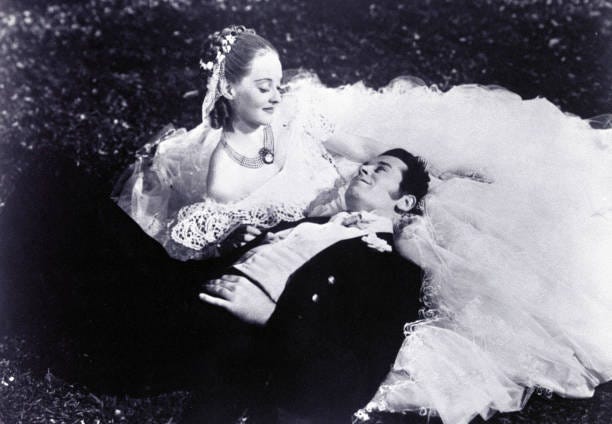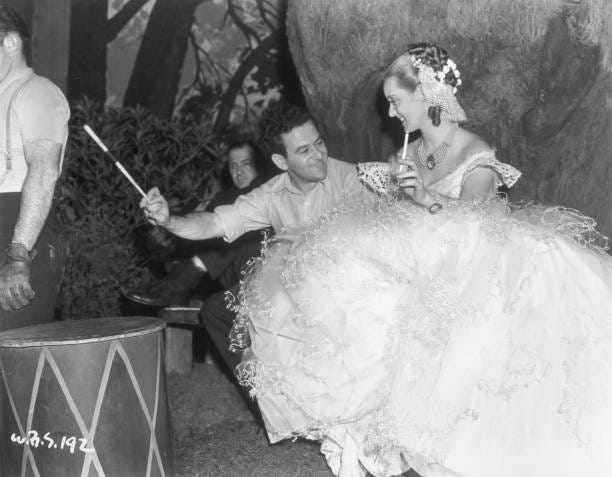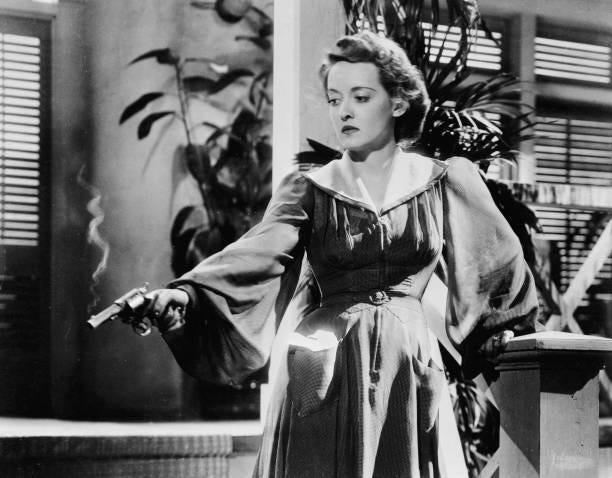Bette Davis on William Wyler
"I have carried him with me to every set, every time. I have had some lousy directors, but I also had Willie...I enhanced it by imagining what Willie might have told me to do."
[Marian Seldes arranged for me to speak with Bette Davis by telephone in 1984. I had hoped to talk to Bette Davis about her time with Tennessee Williams, but she was not positive about the experience of being in The Night of the Iguana, so we veered into other directions. I was not going to end the conversations. I’m glad she indulged me.]
“What was it that Marian [Seldes] said to you? About Guthrie McClintic?”
JG: “She said that she would always be thinking of what Guthrie might think or what he might say to her whatever she was doing.”

“Yes, well that is me with William Wyler. I have carried him with me to every set, every time. I have had some lousy directors, but I also had Willie. I never brought this up. I never ignored a direction. Never. But I…what’s the word?…I enhanced it by imagining what Willie might have told me to do.
“No one ever taught me more or made me do as well as I did. He was tough. If I may so, he was a bastard. But a noble bastard. A good bastard. He settled for nothing but the best, and he was going to dig it from within all of us, by God. And I think he did. At least he got the best out of me. The three films I made for him are among the best I’ll ever do.”

JG: “What makes a good director?”
“I’m not sure if I have all the factors to tell you. Some of it is a mystery. Inexplicable. Certainly, a good eye and good taste are important, but I think what Willie had was a sharp understanding of human behavior, which he matched with the highest levels of…what do I want to say?…production, entertainment, glorious images and costumes and light. He understood the art part of motion pictures as well as he understood the entertainment value of motion pictures. He was smart. A lot of directors aren’t terribly smart—in the general sense, yes, but also in understanding or trying to understand how characters might feel, how they might respond realistically. Willie also was unafraid to ask questions of everyone. What did we think? What could we bring to the characters? The scene? Rare, rare, rare. A lot of directors knew someone in the business, and they got muscled in. Some worked up from stunt man to key grip to editor and then became very utilitarian directors. I’m not saying some of those men didn’t become good directors or make good films, but a family connection and years of climbing up the ladder of motion pictures does not endow anyone with a knowledge of human behavior. You can’t just pick up the gift of inspiring someone to be better, do better all the time.”
“What was that line from Burgess Meredith about McClintic?”
JG: “When McClintic died [in 1961], he said he would always want Guthrie McClintic to be proud of him, and he mourned that he wouldn’t be around to be proud or critical or…’
“Anything! Yes, I like that. I agree with that. I regret that I never had the opportunity to work with Willie again, and I really regret that I can’t know what he thinks of things. [Wyler had died in 1981] I’m not saying that we always remained in touch, but for a long time, he was the one I went to for advice, for his opinion. His opinions were lethal, but they were correct. They improved me.”
The films of William Wyler and Bette Davis:
Jezebel, 1938
The Letter, 1940
The Little Foxes, 1941
© 2024 James Grissom




